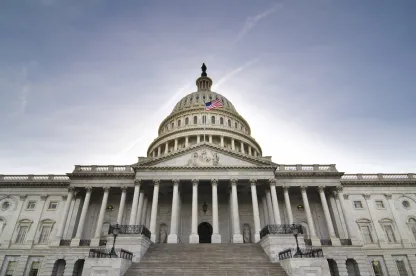For years, certain lawmakers within both parties have sought changes to the Lobbying Disclosure Act (LDA) and the Foreign Agents Registration Act (FARA) to shine light on the lobbying of special interests in Washington. Under a new Biden Administration and a potentially divided Congress, we can expect continued attempts to reform how organizations, individuals, and foreign entities influence U.S. lawmakers. It is unlikely that we will see significant changes during the 117th Congress, since ethics reform has not been prioritized by the GOP-held Senate in recent years, and even if Democrats ultimately control the Senate, margins may be too thin to move an ethics package through Congress.
However, there does remain bipartisan support for certain reforms. Lawmakers in both parties who introduced legislation during the 116th Congress are expected to reintroduce similar legislation in the 117th Congress, and additional ethics reforms could gain traction in the right political environment and with certain key lawmakers prioritizing the effort.
The Biden campaign has said it will release an ethics pledge on the first day of the new administration, and it is unclear if the campaign will allow for registered lobbyists and/or foreign agents to be a part of the transition team, or what limitations a Biden administration will place on lobbyists and foreign agents looking to serve in the new administration. President-elect Biden is also expected to support legislation to establish a new independent agency, the Commission on Federal Ethics, to launch additional disclosure and enforcement requirements, however it is unlikely such comprehensive ethics reform, even if passed in the House, can clear the Senate. Additionally, while the Trump administration has not highlighted comprehensive ethics reform as a priority, the Department of Justice, over the last four years, has increased its enforcement of FARA, as part of an overarching focus to address foreign influence within the United States. Such enforcement is expected to continue under a Biden administration.
Lobbying Disclosure Act and Foreign Agents Registration Act – Possible Reforms
- Updates to the LDA and FARA public disclosure databases to provide more user-friendly data for average citizens to access, including more details regarding lobbying contacts and materials shared.
- Decreasing monetary and lobbying activity percentage thresholds for LDA registration.
- Limits to former Members of Congress to provide strategic advice to clients without formally registering as lobbyists under the LDA.
- Pressure for DOJ to release comprehensive FARA Guidance
- Attempts to remove the LDA exception to FARA registration, which permits foreign agents, under certain circumstances, to register under the LDA instead of FARA.
- Amendments to FARA to: 1) better define activities covered under FARA; 2) Establish civil money penalties for non-filers.
- Establishing a FARA investigation unit within DOJ.
- Requiring elected officials to disclose their communications with any lobbyists trying to advocate for or against a specific bill, including the disclosure of legislative/regulatory text offered by any lobbying interest.
- The Biden Administration may seek to ban lobbying by foreign governments, and require foreign businesses that lobby to certify that there is no foreign government ownership in the entity


 />i
/>i
